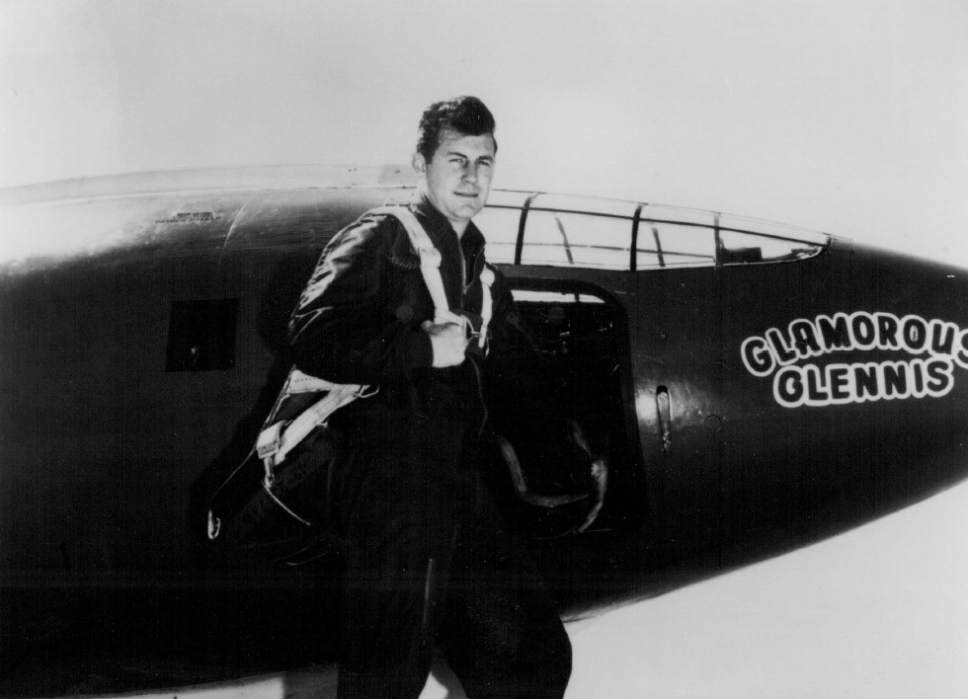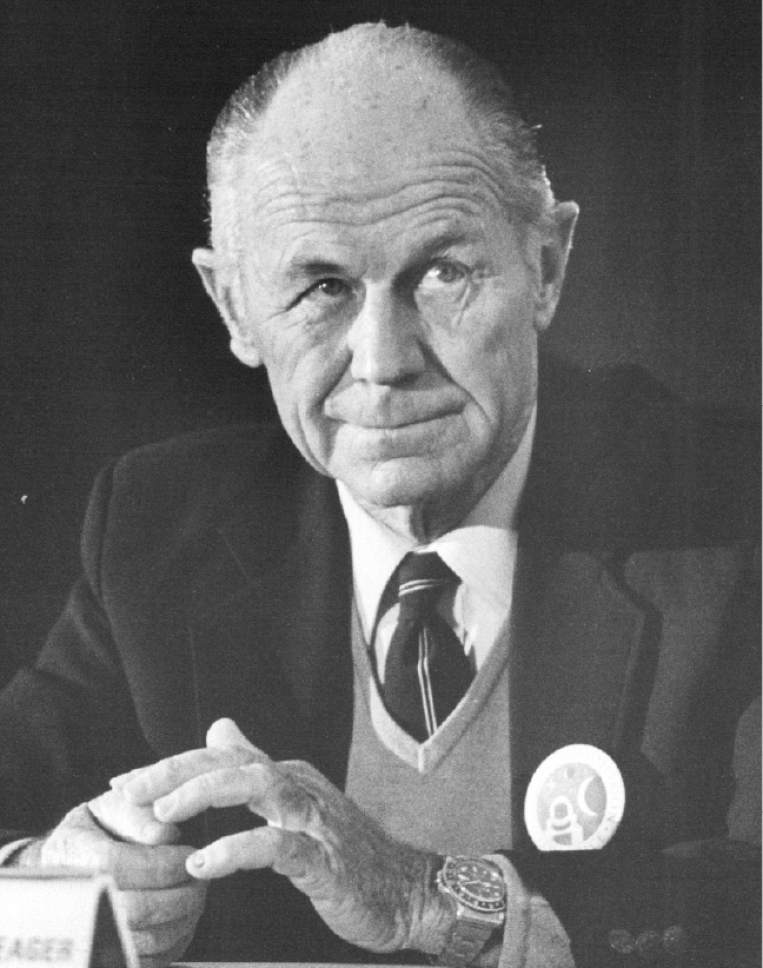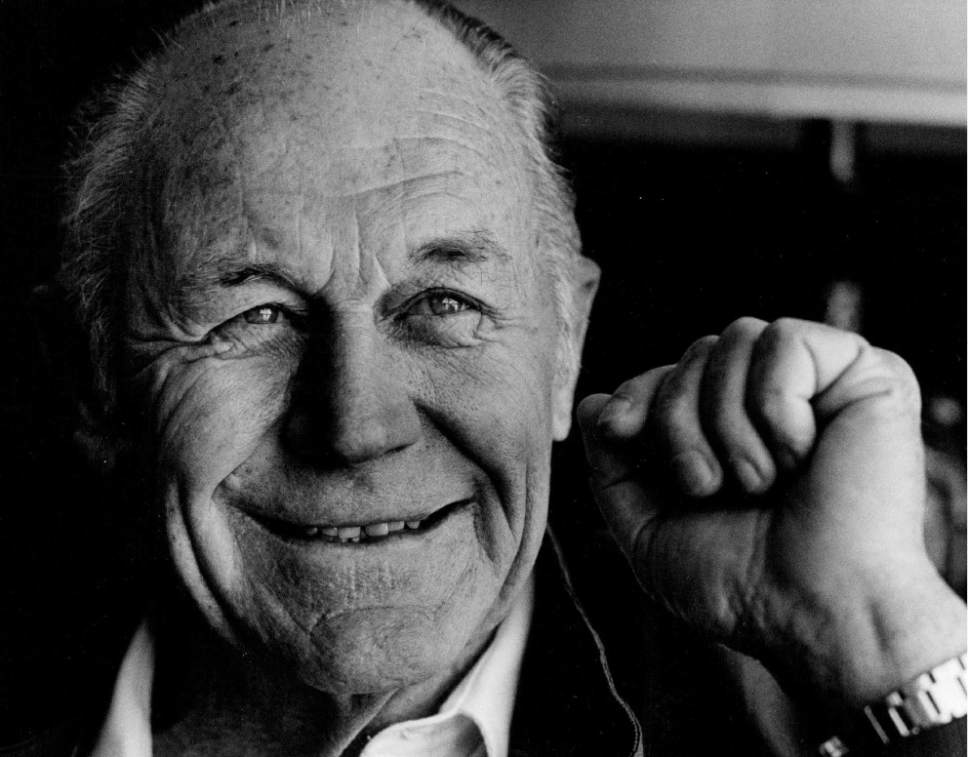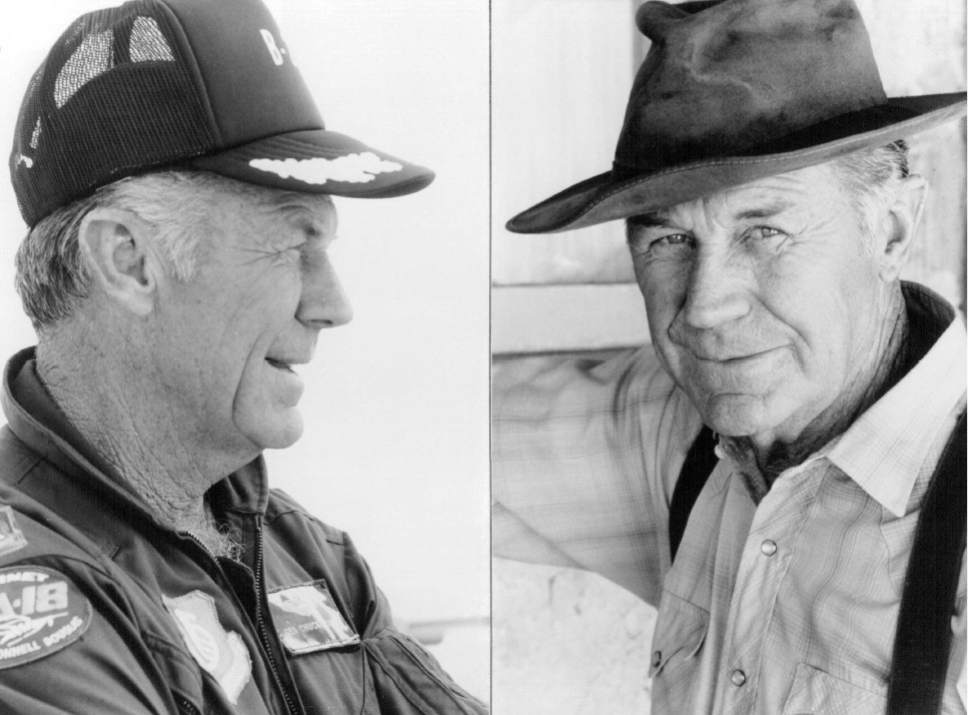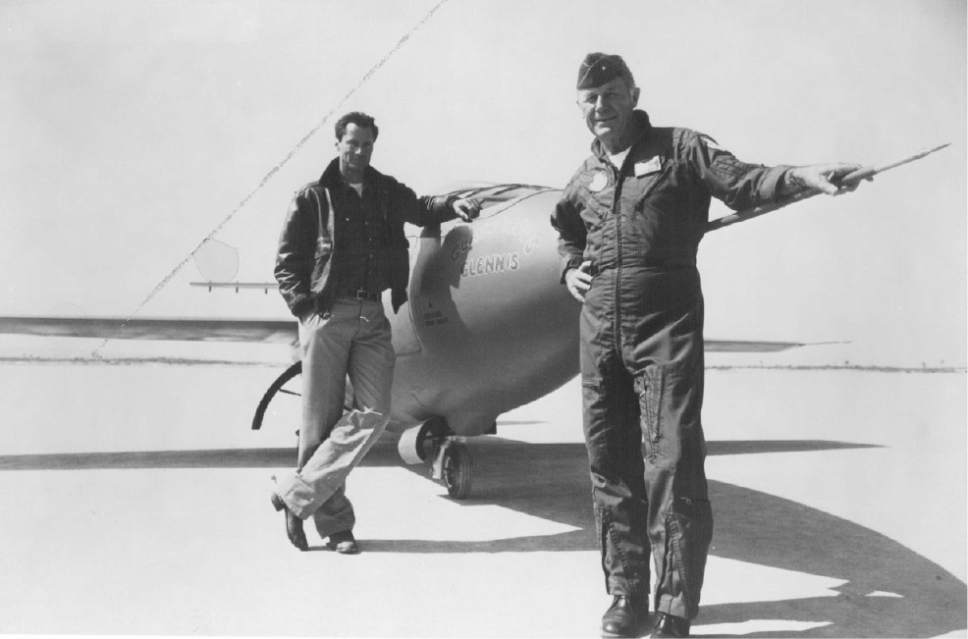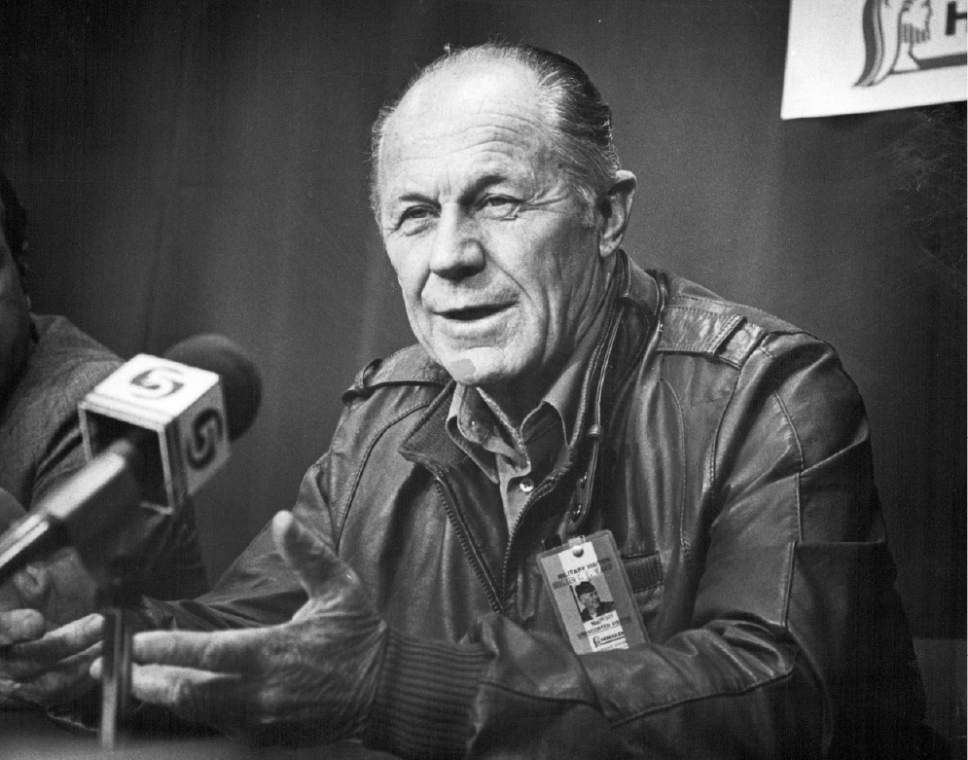This is an archived article that was published on sltrib.com in 2016, and information in the article may be outdated. It is provided only for personal research purposes and may not be reprinted.
Retired General Charles "Chuck" Yeager, who became the first person to travel faster than the speed of sound, has lost another battle over the use of his name to promote a Utah company's products.
The 10th U.S. Circuit Court of Appeals on Tuesday ruled the retired fighter pilot has no standing to continue litigating his claim that the Orem-based Fort Knox Security Products used his name and image without permission.
Yeager, now 93 and a California resident, could not be reached for immediate comment.
Yeager and Fort Knox — which manufactures and distributes gun safes and other security products — entered into an informal oral agreement in the mid-1980s allowing use of the general's name and likeness in various advertisements and promotional materials, according to court records. Under the deal, which ended in 2008, the company provided Yeager with a free safe, the records say.
The parties later disputed the scope of their arrangement, with Fort Knox claiming the deal was modified to allow the company to brand a line of gun safes as Yeager safes, and Yeager asserting he never agreed to the modification. In addition, Yeager said the company used his name after 2008.
Yeager and PMN II LLC — or Protect My Name, a company he created with his wife, Victoria — filed suit in 2011 against Fort Knox in U.S. District Court in Utah alleging unauthorized use of his name and image, and unjust enrichment arising from the oral agreement and alleged modifications.
In December 2013, Judge Ted Stewart tossed out the suit, saying Yeager waited too long to make his claims and "exercised no diligence" in talking to Fort Knox once he was aware the company believed their agreement was more expansive than he did.
Acting as his own attorney, Yeager appealed to the Denver-based 10th Circuit. As a corporate entity, PMN II was required to have a lawyer to continue on appeal; because the company did not have counsel, it was dismissed from the case.
The 10th Circuit overturned part of Stewart's ruling in February 2015 and sent the case back to Utah, saying Yeager could press the claims that fell within the four-year limitations period, or were related to the use of his name and likeness after the termination of the agreement.
In a September 2015, Stewart dismissed those remaining claims, concluding it was undisputed that Yeager had assigned all interests and rights in his image as it relates to safes to PMN II. Tuesday's unanimous decision, by a three-judge panel of the 10th Circuit, upheld that ruling.
In 1947, Yeager broke the sound barrier while piloting the experimental Bell X-1 aircraft.
Twitter: PamelaMansonSLC


